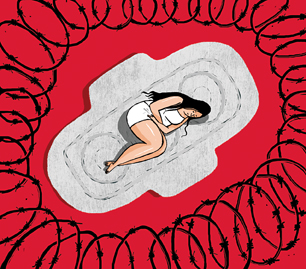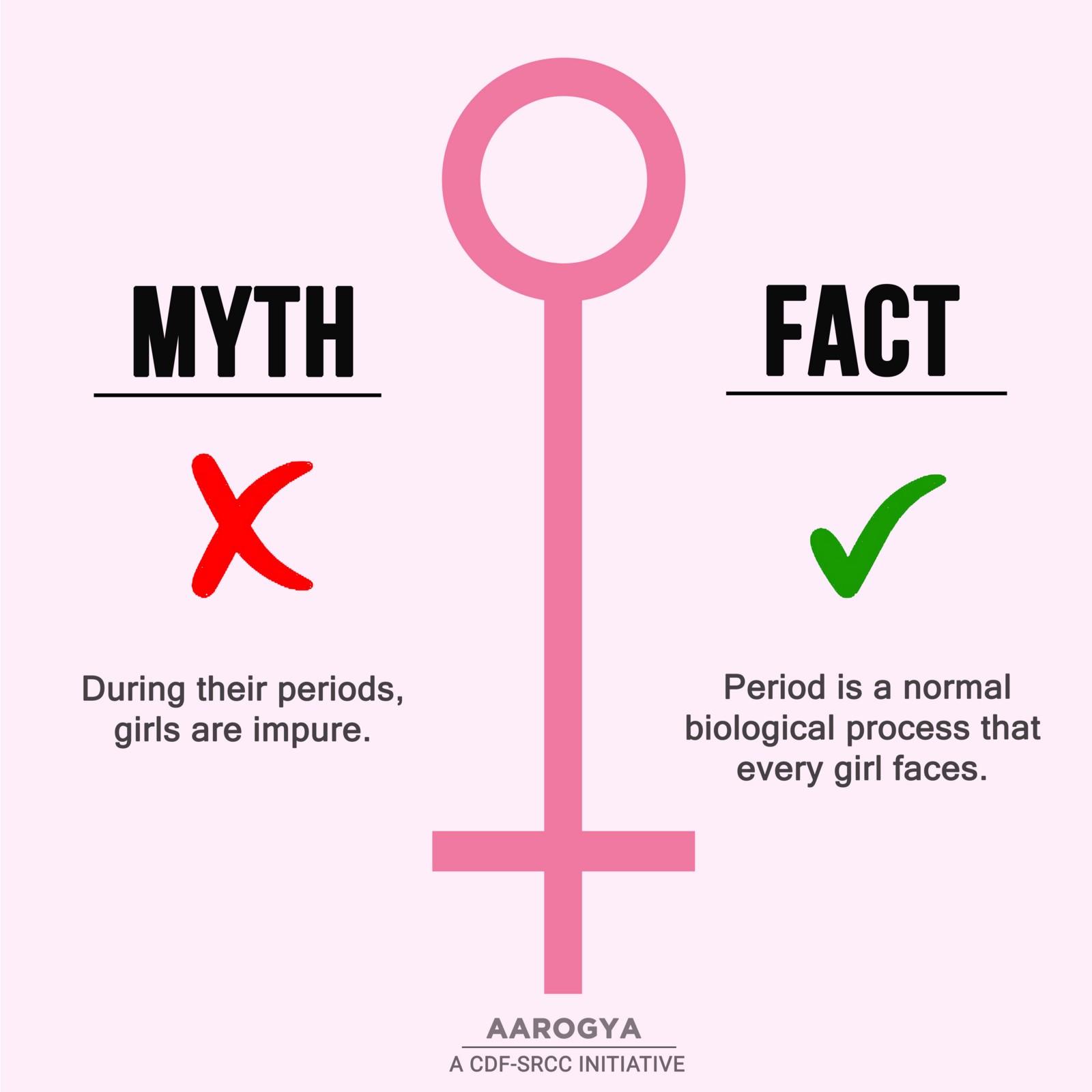Getting it right about menstrual health

Shaziya Fathima, INN/Chennai, @Infodeaofficial
World Mentrual Hygiene Day is up there and time has arrived to focus on menstrual hygiene so that we can stress on understanding the natural process of menstruation. What is required is the good menstrual hygiene management, that needs good understanding of menstruation which is nothing but natural.
Here goes a story, a professor went home to a very depressed son. He was not alright as his close friend in the school, a girl was not playing with him like earlier. Probe into the matter revealed that the girl got her periods at a young age of 10, her parents who were conservative put restrictions on the girl not to take part in the activity.
One can imagine the ordeal the little girl would have undergone owing to sudden change in her lifestyle. That girl is not alone to undergo such situations. It is here proper understanding of menstrual hygiene is required, for that can help doing away such ordeals.
Overall, about 52% of the female population (26% of the total population) is reproductive age. Most of these women and girls will spend between two and seven days menstruating each month. Menstruation is an integral and normal part of human life, indeed of human existence, and menstrual hygiene is fundamental to the dignity and well-being of women and girls and an important part of the basic hygiene, sanitation and reproductive health services to which every woman and girl has a right.

While many girls still are scared of to speak about menstrual issues, some are not. Ayisha, a student of Middlesex University in UAE is one who sees no reason to hassles related to menstrual health. It’s a natural process and I see no reason to be ashamed of it. I haven’t faced any sort of backlash because of my periods and can be open about it, she says.
Menstruation, however, is too often a taboo and is associated with many negative cultural attitudes, including the idea that menstruating women and girls are contaminated, dirty, impure. Menstruating women and girls are forced into isolation, suffer from reduced mobility and dietary constraints, and can be prevented from taking part in daily activities through cultural norms.
Adult women often feel shy talking about menstruation, so girls are not properly informed about what is happening to their bodies or how to stay healthy and maintain self-esteem. Making factual information available is vital to counter negative menstruation myths and support those with positive impacts.
A teacher in a school in Chennai Vijayalakshmi said during her days she was told not to touch plants, not to go near holy plants like Tulsi in particular. During periods we were told that even spirits, ghosts would come near us.
But all those are superstitions, what we need is focus on health. I donot allow my daughter to enter into the kitchen, or allow them to do any physical exercises. This is all for giving them proper rest and ensuring they keep up hygiene, she says.

There is no proper understanding of menstrual hygiene, says Nihal Zainab, assistant professor with JBAS College for Women in Chennai. There are no facilities in public that women in particular can make use of, she says. We need to run to washrooms with sanitary napkin, and, again run from the washroom to dispose that in the dustbin.
My grandmother was a progressive woman, but still she used to call a menstruating woman ‘galeez hai (she is dirty), bath after menstruation used to be called ‘paak paani (clean water). These were imbibed in her since her childhood and she could not get rid of it.
Women and girls have human rights, and, they have periods. One should not defeat the other, said Hannah Neumeyer, head of human rights at WASH United, which works to end the global sanitation and hygiene crisis. Human rights are negatively impacted when women and girls cannot manage menstruation with dignity, but rights should also be at the heart of any solution.
The latest National Family and Health Survey 4 found that 58 per cent of young Indian women (15-24 years) use a hygienic method of protection (mostly sanitary pads), a significant increase from the 12 per cent using pads in 2010 (as reported by the Plan and AC Nielsen study).
This is, no doubt, a consequence of greater attention to menstrual hygiene management (MHM) over the past few years in India. Anna says ‘I believe menstrual health is a very important part of a woman’s life and therefore a major part of the global community and it should be looked after by the government by reducing the prices of menstrual hygiene products and launching awareness programs.
By doing so a part of the difficulties would be lifted off women and they could enjoy easier lives or atleast easier menstrual cycles.’
There are some glaring issues in the way of menstrual education. If any in school education is provided about menstruation, often times only female students are informed about periods, but menstruation impacts everyone and there is no reason that it should be kept a secret from half of the population.
Teaching boys about menstruation and other female sexual health-related facts promotes communication, decreases stigma, and creates more empathy. Not having these early boys and girls conversations can have a major impact on the world.

